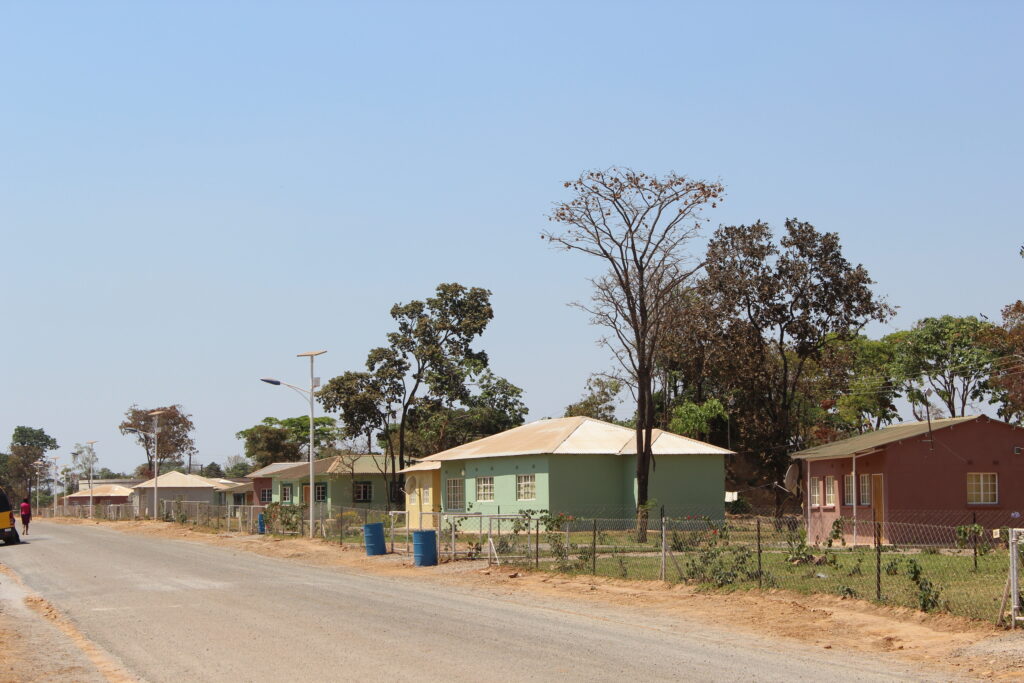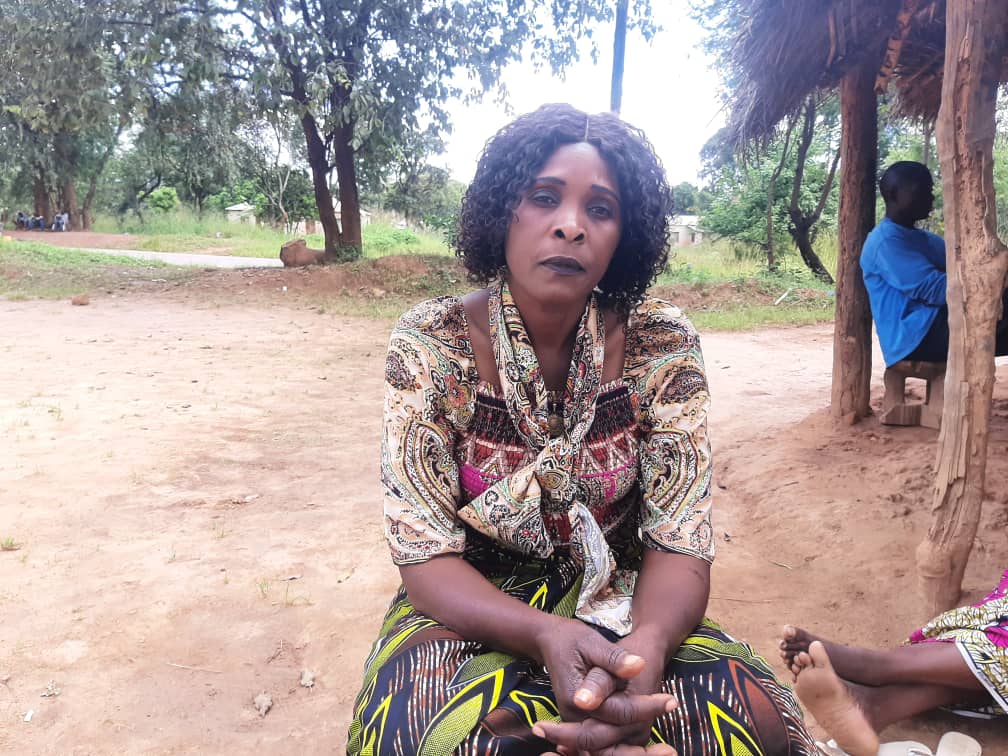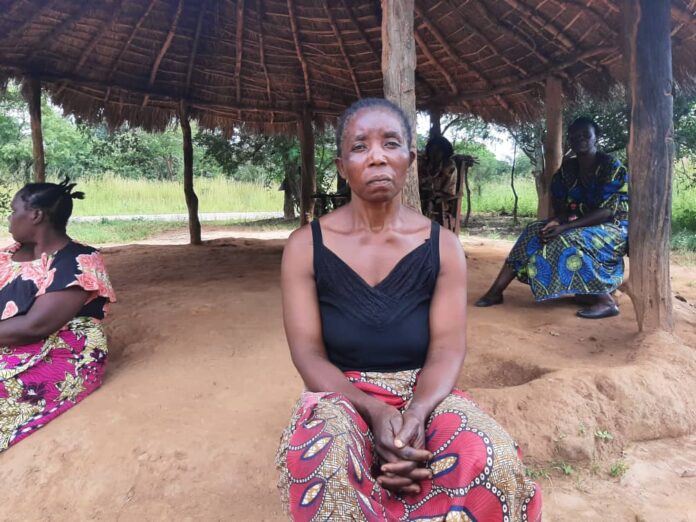By Linda Soko Tembo | MakanDay Centre for Investigative Journalism
“FQM took my farming land one hectare in 2004, and only gave us compensation this year in March, a sum of K22,000 (about US$ 786 at the current exchange rate). What can I do with that money 21 years later?” asked Maggie Luyako, 49, a displaced farmer and mother of eight.
Luyako is one of nearly 300 households in Kakasha, Mbonge, who lost their land to the multinational mining giant First Quantum Minerals (FQM) in 2004. More than 21 years passed before any compensation was paid. The families had depended on that land for survival, and after such a long wait, many—like Luyako—said the settlement they finally received in 2025 was too little, too late.
Now, thousands of displaced farmers are preparing legal action against FQM, accusing the company of forced resettlement, inadequate compensation, and the long-term damage to their rural livelihoods.
The affected residents are represented in ongoing pre-litigation proceedings by the UK-based law firm Leigh Day, specifically by partner Benjamin Croft and solicitor Walker Syachalinga.
Read the full press release here.
According to Syachalinga, the communities live near FQM’s Kansanshi Mine in Solwezi and Trident Mine in Kalumbila—both sites in North-Western Zambia, some 1,000 kilometres from the capital, Lusaka. He said the core issue lies in the company’s resettlement process, which began around 2005 but has largely failed to address the needs of those displaced.
FQM operates the Kansanshi Copper Mine in partnership with the Zambian government through Zambia Consolidated Copper Mines–Investment Holdings (ZCCM-IH), which holds a 20% stake. FQM owns the remaining 80%. Under this agreement, ZCCM-IH receives a 3.1% revenue royalty from Kansanshi instead of dividends.
In 2024, FQM reported total revenues of US$4.8 billion, with its Zambian operations—particularly in Kansanshi and Sentinel—contributing significantly to this figure. Over the past ten years, the company made a total of $252 million in profits after tax from its entire global operation.
In 2023 alone, FQM contributed US$264.5 million in taxes and royalties to the Zambian government, along with an additional US$80.1 million in payroll taxes, according to a statement from public relations firm Langmead & Baker. The company also made other statutory payments, including US$2.8 million to the Ministry of Mines and Mineral Development and US$18.9 million to the Ministry of Lands and Natural Resources.
While both FQM and the Zambian government benefited substantially from these mines, which contribute hugely to the company’s global copper production, many of the local residents who gave up their land have yet to be compensated—or say the payments they did receive are grossly inadequate.
“Our main focus is on the more recent resettlement efforts, which continue to raise serious concerns,” said Syachalinga. One of the central claims is that while some people were relocated and given new houses, they were not provided with replacement land for subsistence farming—an essential livelihood for something many rural families depend on for survival.
FMQ confirmed to MakanDay that a UK-based law firm representing residents from Solwezi and Kalumbila districts in North-Western Province had contacted the company and its affiliates, including those overseeing its Zambian operations. The letter signals an intention to file a claim in the English courts over alleged losses related to the resettlement of community members near the Sentinel and Kansanshi mines.
“All of our Group companies take their obligations and responsibilities toward the host communities around our mines extremely seriously. Although we do not recognise the allegations made in the letter, we are investigating them and will respond in due course,” the company’s Corporate Affairs Department said.
According to Syachalinga, what makes the case suitable for legal consideration in London is the corporate structure of FQM’s Zambian operations.
“The company operates through two entities—Kansanshi Mining Limited, which runs Kansanshi Mine in Solwezi, and FQM Trident, which manages Sentinel Mine in Kalumbila. However, both operations are ultimately owned by First Quantum Minerals (FQM),” he said.
Their investigation, Syachalinga said, found that key decisions regarding resettlement and overall mine management—including binding company policies on both sites—are made in London by FQM executives. These, he argued, are the individuals they believe should be held accountable.
Under English law, he explained, when a parent company devises policies implemented by a foreign subsidiary, the courts have, in some cases, held that the parent company owes a duty of care to people affected by its decisions.
When asked how the Zambian communities could afford legal representation, Leigh Day partner Croft said their services are offered without upfront fees.
“In England, we follow what is known as the ‘loser pays’ principle, meaning the losing party in a case is responsible for covering the legal costs of the winning side,” Croft explained. “In such a scenario, the costs would be recovered from the defendant in this case, FQM so the claimants in Zambia would not be required to pay the legal fees themselves.”
A MakanDay reporter visited Mbonge, a community located in Chief Kapijimpanga’s chiefdom, about 16 kilometres from Solwezi, North Western’s provincial town, and spoke to several displaced farmers. They said their livelihoods were devastated after FQM took over their farmland to expand Kansanshi Mine, build a tailings dam, and housing units for mine employees in an area now known as Kabitaka Hills.

Displaced farmers described FQM as a group of “thieves” that took farmland under the pretext of investment, only to generate billions while offering affected communities minimal or no compensation. Several farmers claim they were denied any opportunity to negotiate.
Luyako said that life had become much harder after losing her land. Before she had been able to grow food for her family, selling what they did not need. Now forced to rent, she used her small payout for her children’s education.

Another affected farmer, 49-year-old Melinda Hangili, said she lost four hectares of farmland in what is now the Kabitaka Hills housing complex. FQM built homes for employees, who pay the company K4,000 (US$ 143) in monthly rent.
She explained that the land once sustained her large family through the cultivation of maize, cassava, groundnuts, beans, and potatoes. She was forced off it in 2012 without any compensation.
“The mine just gave us a piece of paper to sign. We didn’t even know how much we were supposed to receive,” she said, describing the compensation process as chaotic and unfair.
“Some people got as little as K100 (US$ 3.6), others nothing at all, while a few received up to K20,000 (US$ 714).”
She added: “When I went to the bank, I found nothing in my account. I approached both the mine and the bank, but was told everyone had already been paid. I couldn’t fight them. Today, they’re earning money from the houses built on my land, while I suffer with my family. I was in the first group scheduled to be compensated yet I got nothing.”
Another farmer, who asked to remain anonymous and spoke on behalf of over 1,600 affected farmers, said they were displaced between 2005 and 2006 and have not received any compensation to date.
He said the resettlement process was poorly managed, with many farmers removed from their land without proper consultation. The land, acquired by FQM through its subsidiary Kansanshi Mine PLC, was taken from the community, leaving those displaced struggling for years to hold the company accountable.
“It’s been a David versus Goliath battle,” he said. “FQM is a multibillion-dollar company offering solutions that serve its own interests, not those of the community.”
He told MakanDay that the mine offered a flat K22,000 (US$ 786) payout to each farmer—an amount community members say grossly undervalues their land and livelihoods.
“How can the mine apply a one-size-fits-all payment when people had different land sizes?” he asked. “One family alone had over 200 hectares, yet they are also being offered K22,000 (US$ 786). Is that fair?”
He said they have written to multiple government bodies—including the ministries of Lands and Natural Resources, Local Government and Rural Development, Community Development and Social Welfare, Mines and Mineral Development, the Gender Division under the Office of the President, the Office of the Vice President, and Transparency International Zambia—but have received no support.
MakanDay has contacted all the mentioned offices but has only received one response from the Ministry of Local Government and Rural Development.
In a letter the Ministry stated: “The Ministry is unable to confirm nor deny receipt of the said letter Kindly share a copy of the letter so that the Ministry considers the matter to understand how best the matter can be managed.”
Allan Kabwata, representing Sub-Chief Ngobe, said that Mbonge residents have spent years fighting for fair compensation. He said he and other farmers displaced from the Kakasha during tailing dam expansions had also tried to negotiate compensation, but lacked legal representation. FQM had professionals to lead negotiations.
“We went into talks underprepared. We were just 12 people representing many displaced farmers,” he said. “As a result, the compensation offered was inadequate. Losing land, people’s only source of livelihood without fair compensation leaves them unable to rebuild their lives.”
Kabwata said he received K21,000 (US$ 750) for two and a half hectares, but that amount was for crops, not land. He questioned why the land itself was not valued. He also recalled that Kansanshi Mine had promised to develop the relocation site proposed by community members into a modern village with clean water and solar power.
“That promise was never fulfilled. Some weren’t even given land. The issue was ignored after 2012,” he said.
Sub-Chief Mbonge, Mwenze Esiyasa, echoed the frustration, saying complaints over unfair resettlement have persisted for over 20 years. He represented 208 displaced farmers from Kimasala/Zambia Compound who sued Kansanshi Mine PLC in 2006. Though they won the case, many are still waiting for justice.
“In 2021—15 years later—FQM offered K57,000 (US$ 2,036) per hectare. But they brought their own lawyer, who deducted K17,000 (US$ 607) from each farmer, claiming to act on FQM’s behalf,” he said. “The farmers should have consulted me. They already had a lawyer who won the case. But desperation led them to accept this without question.”
When contacted by MakanDay, FQM stated: “All of our group companies take their obligations and responsibilities towards the host communities around our mines extremely seriously and although we do not recognise the allegations made in the (Leigh Day) letter, we are investigating them and will be responding in due course.”
Main Photo | Maggie Luyako, a 49-year-old displaced farmer and mother of eight.
This article was developed with Finance Uncovered, a UK based journalism organisation.

Discover more from MAKANDAY
Subscribe to get the latest posts sent to your email.



